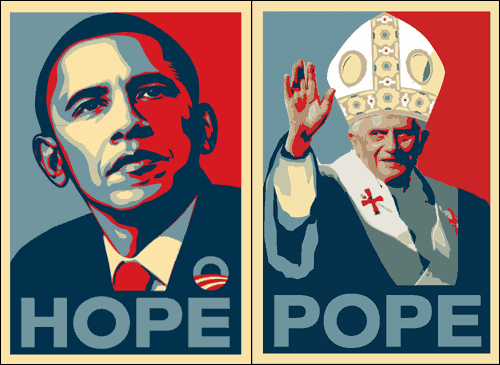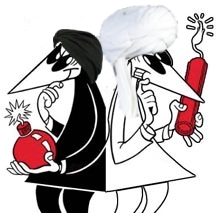
Walid Abu Obeida, a 13-year old farmer’s boy from the West Bank village of Ya’abad, had never spoken to an Israeli until he rounded a corner at dusk carrying his shopping bags and found two Israeli soldiers waiting for him with their guns drawn. “They accused me of throwing stones at them,“ recounts Walid, a skinny kid with dark, hunted eyes. “Then one of them smacked me in face and my nose started bleeding.”
The two soldiers blindfolded and handcuffed Walid, dragged him to a jeep and drove away. All that his family would know about their missing son was that his shoppi ng bags with meat and rice for that evening’s dinner were found in the dusty road. During that interval, the Palestinian boy says he was moved from an army camp to a prison where he was crammed into a cell with five other children, cursed at and humiliated by the guards and beaten by his interrogator until he confessed to stone-throwing.
Walid says he saw his parents “for five about seconds, when the frail, scared boy was brought before an Israeli military court and accused by the uniformed prosecutor not only of throwing stones but of “striking an Israeli officer.” The absurdity of the second charge was apparent to the military judge who only prosecuted Walid for allegedly heaving a stone at soldiers.
Walid got off lightly. He spent 28 days in prison and was fined 500 shekels. Under the Kafkaesque Israeli military law, which reigns in the Palestinian territories, the crime of throwing a stone, at an Israeli solider, or even at the monolithic 20-ft high ”security barrier” enclosing much of the West Bank, can carry a maximum 20 year jail sentence. Every year, an average of 700 Palestinian children are detained, mostly for hurling rocks.
The boy’s case is hardly unusual. A damning report of the Israeli military justice system in the Palestinian territories was recently compiled by the Palestine office of the Geneva-based Defence for Children International (D.C.I.). Th is report, to be released in mid-June, states that “the ill-treatment and torture” of Palestinian child prisoners “appears to be widespread, systematic and institutionalized, suggesting complicity at all levels of the political and military chain of command.” The group’s director, Rifaat Kassis says that the number of child arrests rose sharply in the last six months, possibly because of a crackdown on Palestinian protests in the West Bank, in the aftermath of Israel’s military assault on Gaza.
The D.C.I. report alleges that under Israeli military justice, it is the norm for children to be interrogated by Israeli police and army without either a lawyer or a family member present, and that most of their convictions are due to confessions extracted during interrogation sessions or from “secret evidence”, usually tip-offs from un-named Palestinian informers, a clear violation of the UN Convention against Torture which Israeli ratified in 1991. The children’s rights defenders collected testimony from 33 minors, including one child identified as “Ezzat H.” who describes: “a soldier wearing black sunglasses came into the room where I was held and pointed his rifle at me. The rifle barrel was a few centimeters from my face. I was so terrified that I started to shiver. He made fun of me and said: ‘shivering?’ Tell me where the pistol is before I shoot you.” Ezzat was only 10.
Fifteen-year old Imad T. says he was riding in a car with two friends past a Jewish settlement near Bethlehem when Israeli soldiers allegedly opened fire, wounding all three. The three Palestinian teenagers were then arrested and taken away in a jeep. “They tied us tightly to stretchers and removed bandages from our wounds, which caused the bleeding to resume," he says. "They started beating us…. Whenever we were shouting, the soldiers would slap us on the face and tell us that they did not want to hear our shouts.”
Reaching the army camp, recounts Imad T., “They took us out of the jeep and placed us in the yard. They tore off al our clothes with scissors. We were totally naked, jut like the day we were born. There were more than 40 soldiers there, who started provoking and insulting us. It was very cold.”
Sometimes, Palestinian teenagers throw themselves into the gears of the Israeli security apparatus to flee unhappiness at home. Forced to wed against her will, Jihad Abu Turki, 15, decided that the interior of an Israeli prison was less confining than her marriage. So she and her 14-year old sister Hadeel put kitchen knives in their handbag and approached an Israeli security checkpoint at Hebron’s Tomb of the Patriarchs. The sisters of course were caught. The younger one spent several months in jail and was fined203,000 shekels, while her sister was given a longer sentence because, as Hadeel explains, “She had a bigger knife”. Under interrogation, the teenaged bride confessed to belonging to the Islamic militant group Hamas and plotting to kill Israeli soldiers. But as her mother Asma explains with a sigh, “All she wanted to do was punish herself. She didn’t want to be married, and this was her way out.”
A U.N Committee Against Torture, which met on May 15th in Geneva, expressed its “concern” over Israel’s alleged abuses of Palestinian child prisoners. In its defence, the Israeli government denies any ill treatment of children detainees and insists that all claims are thoroughly investigated. Israel authorities also claim that the number of complaints of alleged abuse has dropped in recent months, but as Khalid Quzman, a defence lawyer at the Israeli military courts says, “We don’t complain any more because it’s a waste of time. “ Over 600 complaints of torture and ill treatment were filed between 2001 and 2008, he says, “and not a single criminal investigation was ever carried out.”
An Israeli human rights group, B’Tselem, recently published testimony from an Israeli commander who claimed that it was standard army practice to “detain, interrogate and use suitable pressure on every person to get one terrorist. Of all the means of pressure that we use, the vast majority are=2 0against persons who are not involved.” After a spell in an Israeli jail, it’s hard for a young Palestinian to stay un-involved. Thirteen-year old Walid who says he never cared much for anything aside from his school friends and family before his incarceration, now bears a radioactive hatred towards Israelis. “The soldiers’ curses and insults, I’ll carry them to my grave,” he says.
(Exclusive guest post from the Red Heifer)





































